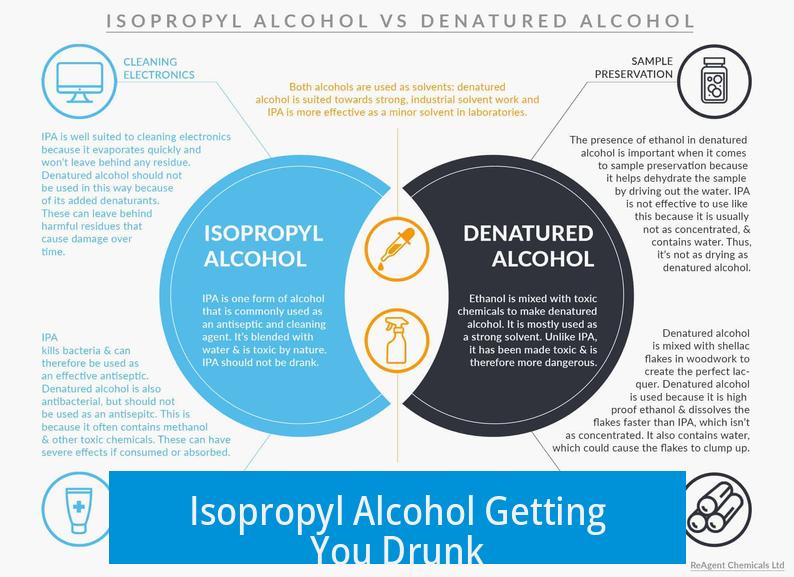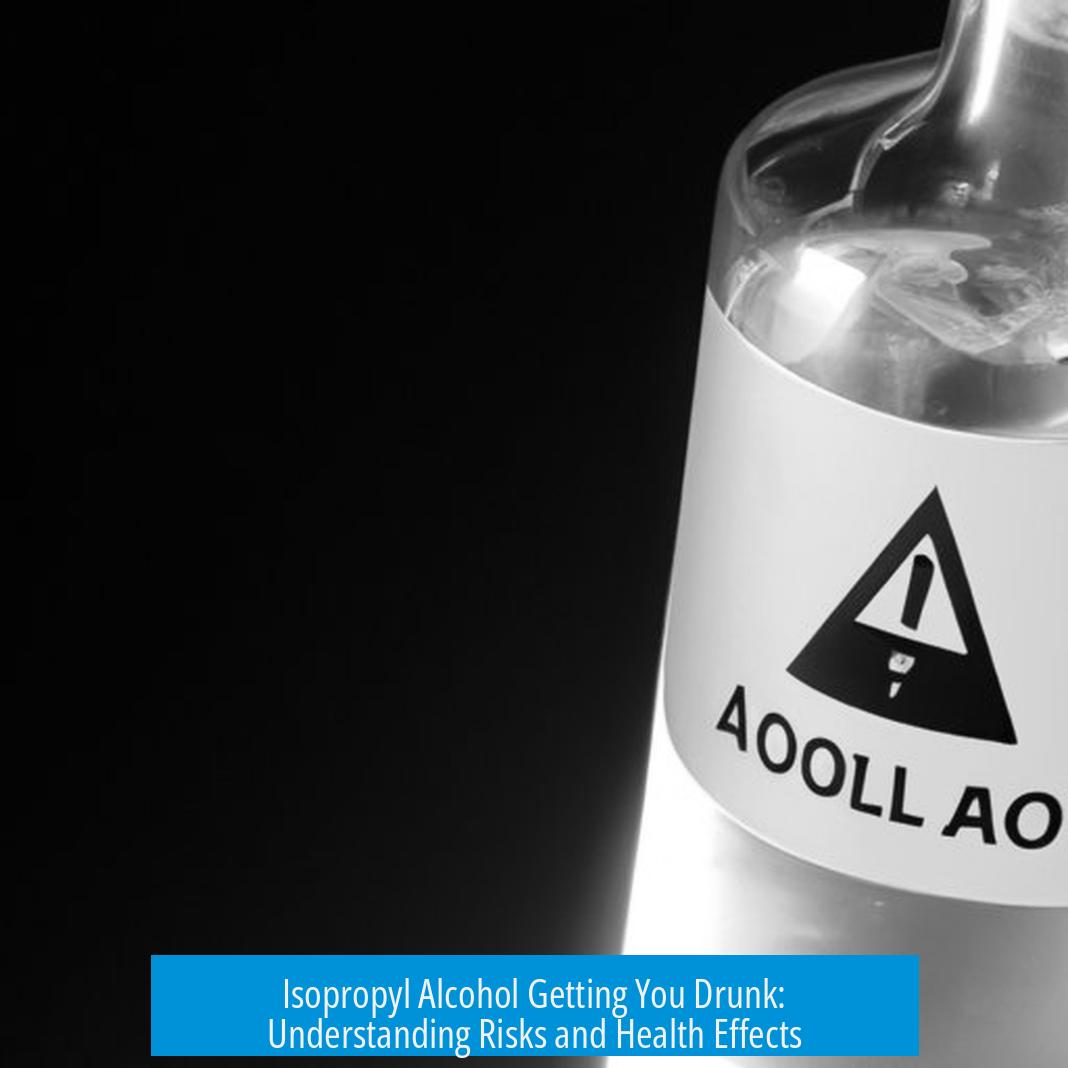Isopropyl Alcohol Getting You Drunk
 Isopropyl alcohol does not cause intoxication like ethanol does; instead, it poses significant health risks and toxicity when ingested. Drinking isopropyl alcohol leads to severe organ damage, gastrointestinal distress, and potentially fatal outcomes. Although it undergoes metabolism in the body similarly to ethanol, its effects are not pleasurable intoxication but harmful poisoning.
Isopropyl alcohol does not cause intoxication like ethanol does; instead, it poses significant health risks and toxicity when ingested. Drinking isopropyl alcohol leads to severe organ damage, gastrointestinal distress, and potentially fatal outcomes. Although it undergoes metabolism in the body similarly to ethanol, its effects are not pleasurable intoxication but harmful poisoning.
Toxicity and Physiological Impact
Isopropanol is markedly more dangerous than ethanol. Consuming even small volumes (a few ounces or tens of milliliters) results in harsh irritation of the stomach lining, including vomiting, cramps, and possible internal bleeding.
The compound causes damage resembling exposure to solvents like nail polish remover. It is not typically acutely lethal in small amounts but severely harms organs over time. Individuals who consume it often require immediate medical care to prevent permanent injury. Vomiting blood and severe gastrointestinal symptoms are common in larger ingestions.
Metabolism and Clearance
Isopropyl alcohol’s elimination half-life in humans is around 7 hours. The body metabolizes it primarily to acetone, which has a longer half-life, up to 27 hours, persisting in the system even after the parent compound is cleared.
Acetone buildup may contribute to prolonged toxic effects. It is important to note that breathalyzers typically detect ethanol and rarely give accurate readings for isopropyl alcohol or acetone unless specially calibrated.
Breathalyzer Readings and Misinterpretations
High breathalyzer readings, like a .23 blood alcohol concentration (BAC), attributed to isopropanol ingestion are misleading. To show such a level due to acetone would require dangerously high concentrations typical of medical emergencies like ketoacidosis, which is life-threatening.
Thus, breathalyzer results indicating intoxication but linked to isopropyl alcohol ingestion should be regarded cautiously, with further medical evaluation advised.
Medical Emergencies and Treatment
Ingesting isopropyl alcohol requires urgent hospitalization and therapy. Supportive care in a medical setting is essential to manage symptoms, prevent organ damage, and clear toxins.
Delayed treatment greatly increases risks. Professional healthcare intervention remains the only safe approach in such poisoning cases.
Key Takeaways
- Isopropyl alcohol ingestion does not produce typical alcohol intoxication but causes toxicity and organ harm.
- It metabolizes to acetone, which remains longer in the body and may affect detection methods.
- Breathalyzer tests are unreliable for detecting isopropanol intoxication.
- Medical emergency and hospital care are necessary after consumption.
- Self-consumption of isopropyl alcohol is dangerous and strongly discouraged.
Can isopropyl alcohol consumption cause intoxication similar to drinking ethanol?
Isopropyl alcohol does not cause typical intoxication like ethanol. It is more toxic and harsh on organs, leading to severe side effects like vomiting and stomach cramps rather than a feeling of drunkenness.
Why might a breathalyzer show a high reading after isopropyl alcohol ingestion?
Breathalyzers are designed for ethanol and may not accurately detect isopropanol. The high reading is often due to acetone, a metabolite of isopropanol, but this usually doesn’t produce a reliable blood alcohol level.
How does the body process isopropyl alcohol compared to ethanol?
The body eliminates isopropyl alcohol in about 7 hours. Its metabolite, acetone, stays longer, up to 27 hours. This acetone can cause lingering effects even after initial poisoning.
What are the health risks of ingesting isopropyl alcohol?
Drinking isopropyl alcohol can cause severe gastrointestinal damage and organ irritation. It is very harmful and can be life-threatening, requiring immediate medical attention.
Can repeated ingestion of isopropyl alcohol cause sustained intoxication?
Yes, repeated consumption may lead to ongoing acetone intoxication. This can cause prolonged symptoms and serious health issues, making hospital treatment necessary.





Leave a Comment